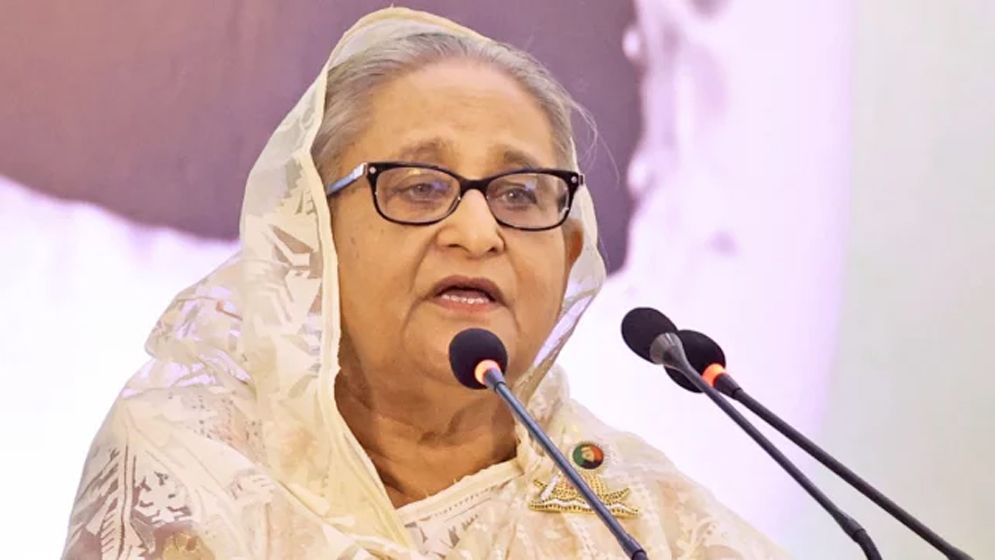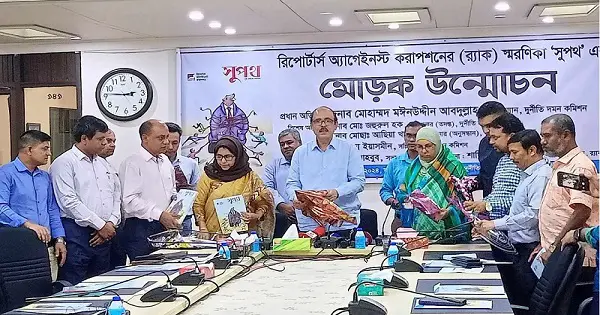Prime Minister Sheikh Hasina said that due to the global market, the country is feeling the pressure of import inflation. However, on the occasion of fasting, the government has continued all kinds of activities to keep the prices of daily necessities normal and to prevent the manipulation of syndicates or hoarders, the Prime Minister said. However, he urged not to listen to the rumors that BNP-Jamaat sometimes spreads.
The Prime Minister said these things in response to a supplementary question by MP Ali Azam in the National Parliament on Wednesday (February 28). Speaker Shirin Sharmin Chowdhury presided over the session.
The Prime Minister said, I said first of all don’t listen to rumours. But during Roza Ramzan some unscrupulous traders want to stock up, in every case we have taken extensive monitoring measures so that unscrupulous traders cannot play with this daily staple of people. But we are interdependent for many of our products, we can overcome that and become self-reliant. And each store will have a price list, from which it will be understood who is raising the price of the product. But I would say don’t listen to rumours.
The Prime Minister said that the present government is the people’s government. So the government is always trying to reduce the suffering of the people. To this end, the government has continued all kinds of activities to keep the prices of daily necessities normal. We have already managed to contain the abnormal rise in consumer prices to a large extent. However, due to the increase in the price of some products of the world market such as fuel oil, edible oil, wheat, fertilizers and various food products, consumer goods and industrial raw materials, the pressure of import inflation is being felt in our country. In the upcoming month of Ramadan, the government has taken various steps to control the inflation including controlling the prices of daily necessities. The measures include various tariff concessions to reduce inflation; Import of crude soybean, refined/crude palm oil is exempted from 10% VAT at import level and all VAT levied at production and trader level. In view of the demand for dates during the holy month of Ramadan, import duty has been reduced from 25% to 15% through a notification dated February 7 to levy tariffs on the basis of fair value and abolish customs duties and regulatory duties.
The Prime Minister said that the import duty rate of refined and unrefined sugar has been re-fixed considering essential commodities. Imports of rice have been exempted from all import duties levied and the regulatory duty has been fixed at 5% instead of 25%. In order to control inflation, the policy (repo) interest rate has been increased in phases from 4.75 percent in May 2022 to 8.00 percent last time. Besides, the reverse repo rate (SDF) has been increased to 6.50 percent and the loan interest rate cap has been lifted. A significant increase in policy rates has led to a visible change in market-based average interest rates. It is hoped that inflation will come under control soon.
Crawling peg based currency exchange policy is being adopted to stabilize the foreign currency exchange rate. It is expected that this system based on defined corridors will prevent abnormal fluctuations in foreign exchange rates. As a result, it will also help in controlling inflation. In the upcoming fast, with the intention of keeping the prices within the purchasing power of the common people, the activities of adequate supply of daily commodities have been taken. Diplomatic initiatives have been taken to supply 1 lakh metric tons of sugar and 50 thousand metric tons of onion to the Indian government as one of the essential commodities. The market price of agricultural produce is published on the website of the Department of Agriculture Marketing on a daily basis. On the occasion of the upcoming holy month of Ramadan, steps have been taken to sell milk, meat and eggs at affordable prices through mobile sales centers of the Department of Livestock at 25 spots in Dhaka city in order to meet the needs of low-income people for safe animal meat and keep the product prices at a bearable level. On the occasion of holy Ramadan, customs stations concerned with imports have been instructed to release edible oil, sugar, chickpeas, lentils and dates quickly.
He said that the Ministry of Commerce and the Ministry of Agriculture are working jointly to increase the supply of goods in the lean period without stopping the import to keep the prices of agricultural products stable. Food friendly programs are being implemented to mitigate the impact of inflation on the poor and low income people of the country. Under the food friendly programme, OMS rice is being sold at the rate of Tk 15 per kg among low income groups and Tk 30 per kg in city corporations, municipalities and district towns. Subsidies and incentives given in the agricultural sector indirectly help in keeping down the prices of agricultural products by reducing the cost of production of the farmers. 17 thousand crores have been allocated as agricultural subsidies and incentives in the financial year 2023-24. The fortnightly milling capacity of each mill has been reduced from five times to three times for paddy so that unscrupulous business syndicates cannot control the food market by creating artificial crisis. Due to the revision of this provision of stocking, the supply of paddy in the market is now normal and it is possible to prevent illegal stocking. The warehouses of rice millers and grain traders are being regularly inspected. A decision has been taken to write information on rice bags from auto rice mills – name of rice variety, name and address of manufacturing mill, net weight, date of production and price of rice at the mill gate.
The Prime Minister said that as a result of all these measures, the poor people, especially poor families, elderly, widows, women with low incomes, including low-income people will get relief, and I hope that the price inflation will be at a bearable level during the holy month of Ramadan and the prices of daily necessities in the market will be brought under control. doing





